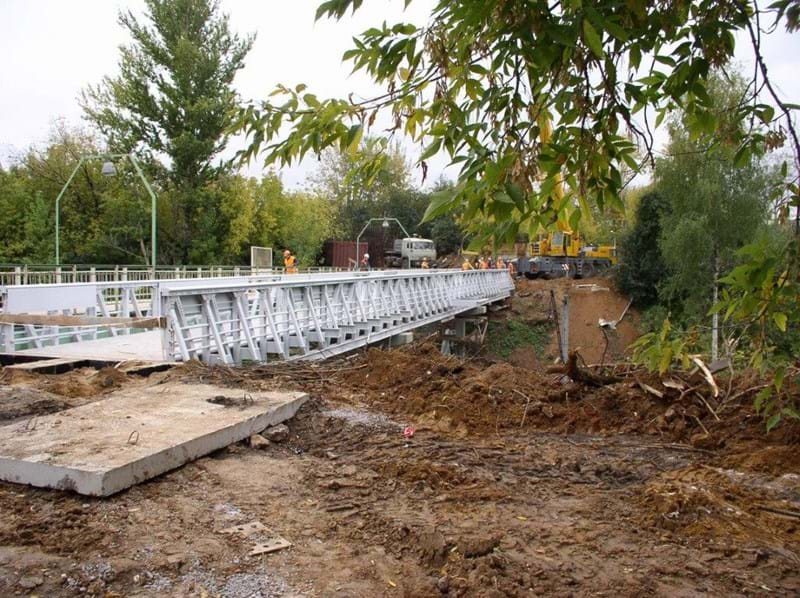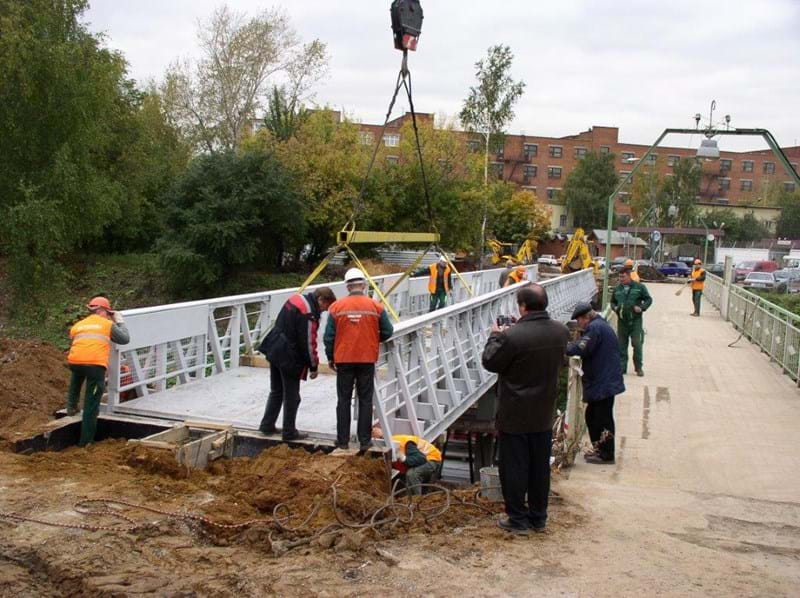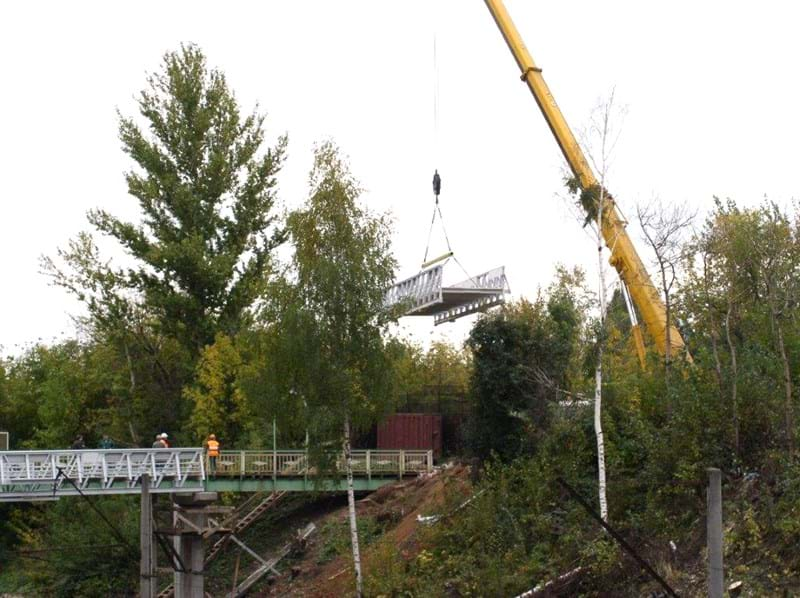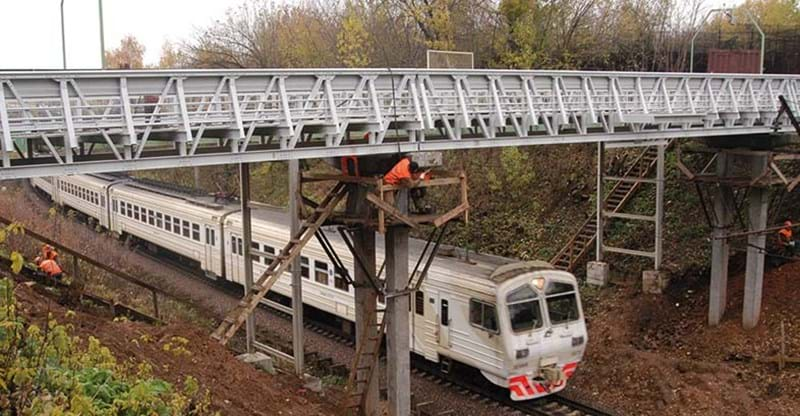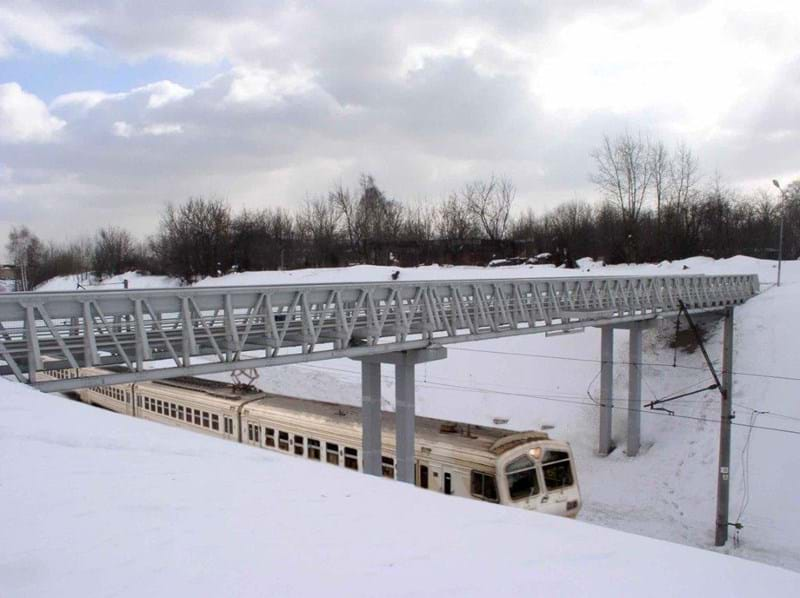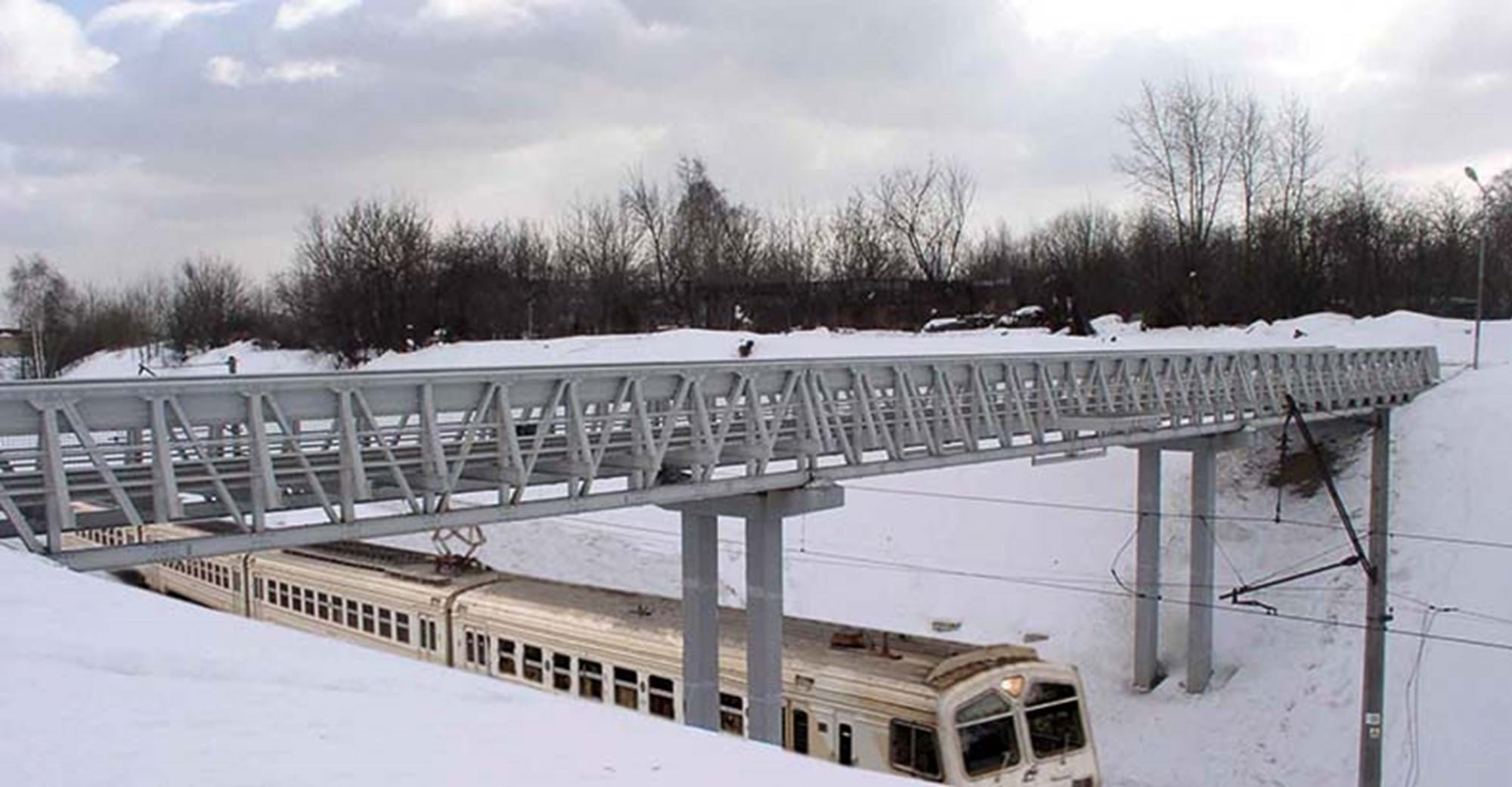

Fiberline Building Profiles A/S
Fiberglass bridge deck
Russian bridges were previously made of either steel or concrete. But during the harsh Russian winter, large amounts of salt have to be used to tackle ice and snow. As a result, corrosion rapidly gains a hold, necessitating bridge repairs every single spring.
As maintaining a bridge that spans a railway cutting is a difficult process, the bridges deteriorate and the maintenance bill is high.
This has prompted the Russian enterprise ApATeCH in partnership with Fiberline to construct the country's first GRP bridge at Chertanovo in Moscow. Fiberline supplied GRP profiles, structural calculations, fittings and bolts. ApATeCH is a research centre that among other things specialises in development and manufacture of critical high-technology composite products for general and transportation machine building.
The Chertanovo bridge is 41.4 metres long by 3 metres wide. In the factory the bridge was assembled in three parts – two 15-metre sections and one 13-metre section – and then carried to the installation site by road.
ApATeCH's Head of International Cooperations, Dmitry Zhilenko: "We had a window of just two to three hours on the Sunday morning to install the bridge without halting rail traffic. The short installation time is another important factor in favour of GRP, particularly in the case of railway bridges, because it means that prolonged disruption of train services can be avoided." The bridge was able to be lowered into position by crane from the side in just 49 minutes.
The Chertanovo Bridge is made of Fiberline standard GRP profiles: planks, square tubes, U-profiles, handrails, and so on. The products satisfied ApATeCH's specifications even though load and deflection requirements for building structures are higher in Russia than in other European markets.
Fiberlines' GRP profiles also received two Russian State Building Committee approvals for use in conjunction with construction (TS 07-0873-04), and for production of GRP profiles for bridge building (TS-07-0833-03).
Prior to installation, the bridge also underwent full-scale trials at The Russian Railways' Testing Centre in St. Petersburg. This led to the safety factors being brought into line with specifications in the other European markets.
Fiberline is the only producer capable of documenting the compliance of its profiles to European standard EN 13706, E23 – the most stringent quality specification.
ApATeCH is already working on the next bridges, and a great deal of interest has been shown in the Russian media. The most recent development is a pedestrian bridge that has just been installed at Moscow's Kosino railway station.
But nationwide there are thousands of corroded bridges in need of replacement. There is therefore immense potential for GRP bridges in Russia.
The Russian GRP bridge was hoisted into place over a railway cutting in 49 minutes, thereby avoiding disruption of rail services
